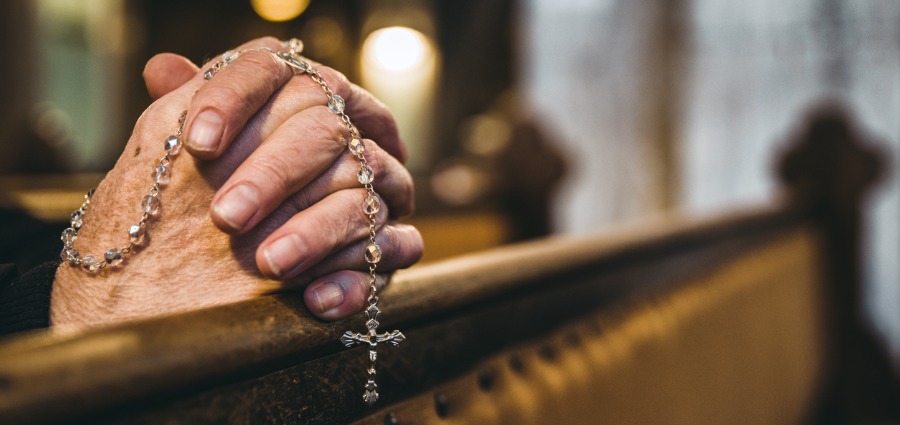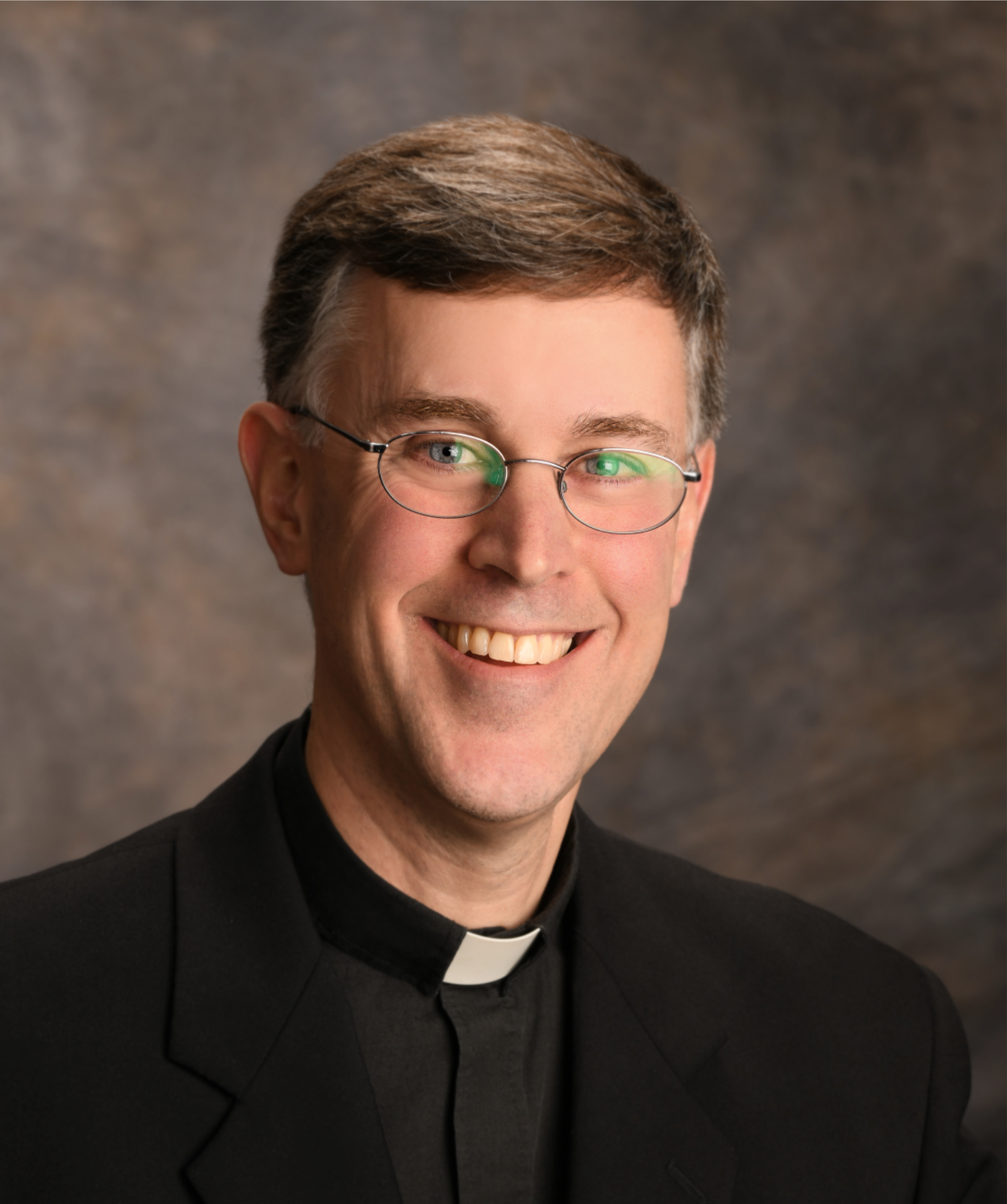
Authentic Prayer - Family Reflection Video
After reading and praying over today’s Gospel, I thought of a question: “How’s your prayer life?” What would you say if you could answer that question confidentially? Would you say good, fair, not so good, or I don’t know?
Most likely, if you’ve ever gone on a retreat, had spiritual direction, or gone to seminary, you’ve been asked that question, and, maybe, like me, wondered, how do I know?
So, let me pose another question: how are you and God getting along? What would you say to that? What would I say?
Conversation with God
In prayer, like in conversations with our families and friends, we find out how we’re getting along. Authentic prayer, like sincere conversations, involves sharing what’s going on in our hearts, minds, and actions.
Prayer has many forms, and each of us has certain likes and dislikes. For instance, you might be drawn to silent meditative prayer, a time when you calm your thoughts and actions. Others are drawn to communal prayer with Gregorian chant. Of course, there is also the Rosary, which combines the key prayers with meditation upon the Mysteries, as well as the Divine Mercy Chaplet and the Liturgy of the Hours.
Today, we remember and give thanks to two holy and courageous men: St. John Fisher and St. Thomas More, both from England, who gave their lives for the faith in the time of Henry VIII.
The saints are people like you and me who prayed to God as Jesus taught. They prayed and listened. They prayed and conformed their lives to Christ. In each saint, there is a story particular to their time, person, and place, and, at the same time, has the power to inspire all people.
Yesterday, I read a bumper sticker on a car that said, “It’s not a religion; it’s a relationship.” Well, there’s a lot we could say about the religion aspect, but, for today, let’s acknowledge the truth that religion begins with, and is nourished by, a personal relationship with God.
Praying the Our Father
This is why Jesus tells us to call God “Our Father.” Every time we say that prayer, we acknowledge our heavenly Father and reverence His holy name, a good reminder not to take the Lord’s name in vain.
We pray for His kingdom to come and for God’s will, not ours, to be done. Having a good prayer life means we are conscious of what we are saying when we pray. In that phrase, we trustingly ask that not our will but God’s will be done!
Knowing that we need to be nourished both physically and spiritually, we ask the Father for our daily bread. Our daily bread is found in the Eucharist and in the grace that God gives through other means, as well as in the food we need to nourish our bodies.
Recognizing that we fall, we ask for His mercy and pledge to forgive others as God forgives us. We need that phrase, “forgive us our trespasses as we forgive those who trespass against us,” echoing in our minds and hearts, whether at home, at work, or on the road.
Finally, we ask God to lead us away from temptation and deliver us from evil.
There are many ways to pray, but we know that Jesus’ instruction when asked was the “Our Father.” Every day, we can be confident that our prayer life has a good foundation if we deliberately and thoughtfully say that prayer, worshipping and petitioning our Father as sons and daughters of God.
You know, asking someone how their prayer life is going can cause them to wonder what you mean or maybe why you’re asking, but if done in the right spirit, it shows you care and acknowledge the need for all of us to make the time to give praise, talk, listen, and sing to the Lord.
May the Holy Spirit inspire and guide us in our dialogue and relationship with God and our families so that when we meet Jesus one day, He’ll know our voice, and we’ll know His.
May God bless you and your families this holy day!
- Father David's inspirational homily was recorded live this morning during Mass at the Father Peyton Center. Please view the video on our Facebook page. (You don't need a Facebook account to view.)
- To view Rosary prayer and Mass streaming live, please visit our Facebook page at 11:30 am Eastern, Monday – Friday. Please invite your loved ones to join us too! (You don't need a Facebook account to view.)
About Father David Marcham
Reverend David S. Marcham is the Vice Postulator for the Cause of Venerable Patrick Peyton, and Director of the Father Peyton Guild, whose members pray for Father Peyton’s beatification and spread his message of the importance of Family Prayer. Prior to becoming a seminarian, Father David was a physical therapist and clinical instructor, serving hospital inpatients and outpatients throughout the greater Boston area for eleven years. In 1998 he heard the call to priesthood and was ordained in the Archdiocese of Boston in 2005. Father David grew up in Quincy, MA, and has fond memories of playing soccer, tennis and running track. You’re never without a friend when Father David is around, as he welcomes everyone into his circle with a smile on his face!

